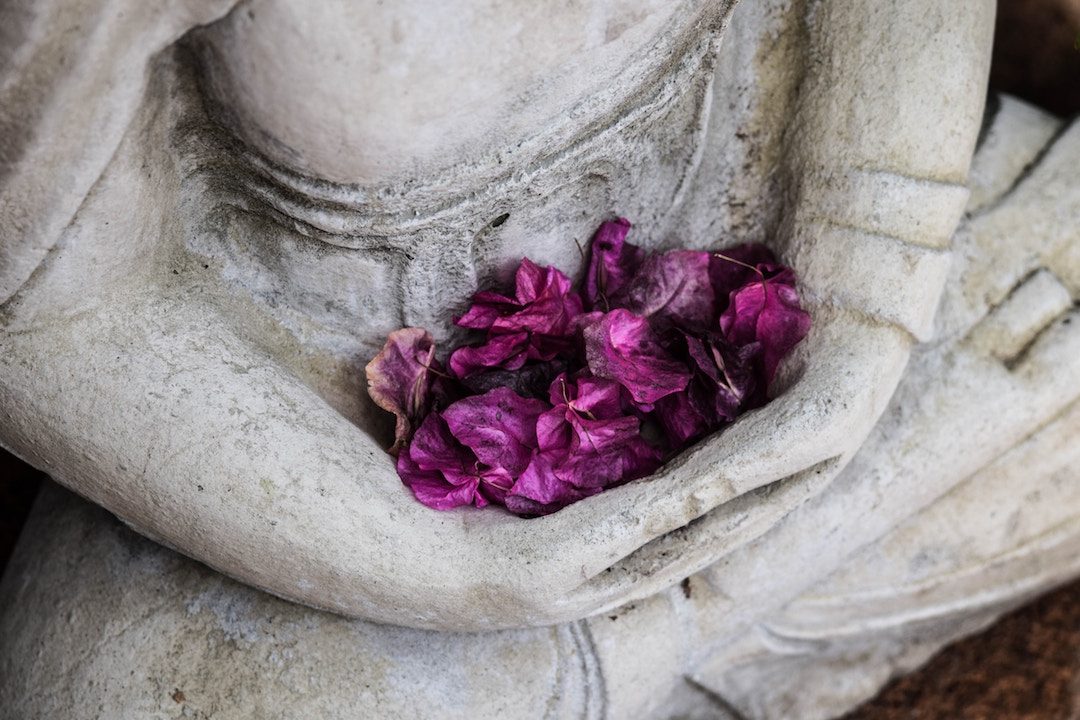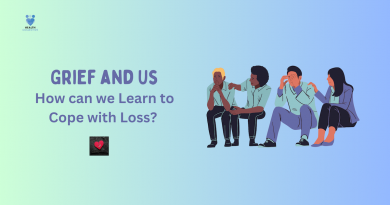Mental Health First Aid for Adult Survivors of Sexual Violence
By Vandita Morarka
Author’s Note: This manual wouldn’t have been possible without multiple inputs from Dr. Avinash DeSousa and Pragya Lodha. Their views have been condensed, along with the views of other mental health professionals, to provide an easy to read format.
Sexual violence has an immense impact on physical and mental health. An aspect of aftercare that is underserved for survivors of sexual violence is often mental healthcare. Its impact on mental health can be as serious as its physical impact, and may be equally long-lasting. This WHO report highlights the impact of sexual violence on mental health in the short and long term on the survivor, and on their relationships and life quality. Guidelines & Protocols: Medico-legal care for survivors/victims of Sexual Violence, 2014, by the Ministry of Health and Family Welfare, Government of India, lays down the importance for mental and physical healthcare.
It states, “The right to health care requires the state to ensure that appropriate physical and mental health services are available without discrimination and are accessible, acceptable and of good quality.” It further states, “To realise the right to health care of survivors/victims, health professionals must be trained to respond appropriately to their needs, in a sensitive and non-discriminatory manner respectful of the privacy, dignity and autonomy of each survivor.” The Ministry places importance on providing psychological assistance to both the victim and perpetrator of violence if required and provides for directing the health facility to handle cases of gender based violence (covering a wider spectrum) with compassion and with the help of a psychologist/psychiatrist.
The WHO Guidelines for medico-legal care for victims of sexual violence, lay out the importance of mental healthcare for survivors of sexual violence. It states that, “The mental health consequences of sexual violence can be just as serious and long lasting. Victims of child sexual abuse, for example, are more likely to experience depression, substance abuse, post-traumatic stress disorder (PTSD) and suicide in later life than their non-abused counterparts. Worldwide child sexual abuse is a major cause of PTSD, accounting for an estimated 33% of cases in females and 21% of cases in males.” For a survivor of sexual violence to cope with the health consequences of of the violence, they need compassionate and sensitive mental healthcare.
The recent rise of the #MeToo movement has chartered a new chapter for survivors of sexual violence to be able to claim ownership of their narrative and share their stories. At the same time, the movement in itself has been triggering for survivors of sexual violence – especially with these stories being shared without any warning with regard to their content. It has also placed undue pressure in some cases on survivors to share their stories, when they may not yet be at a place where they want to do so. In such a time, it is increasingly important to equip survivors and their ecosystems with the tools to take care of their mental health.
This manual outlines key mental health first aid concerns to be kept in mind for aftercare for adult survivors of sexual violence for caregivers and well wishers, professionals, and for the survivor themselves; and highlights what mental health first aid looks like from different perspectives.
ALSO READ: ‘ME TOO’ AND MENTAL HEALTH
For friends, family, and immediate caregivers:
- Believe the survivor
- Ensure that the survivor is in an environment that makes them feel safe
- Inform yourself of mental healthcare resources available for survivors of sexual violence
- Be there emotionally for the survivor, this includes actively listening to them and not judging. It also includes maintaining calm and assuring confidentiality to the survivor
- Encourage the survivor to reach out for additional mental health care support, but do not pressurise them. It is pertinent that the victim remains in control of their process of healthcare
- Don’t say what you cannot guarantee to the survivor
- Establish physical contact, like a hug, with the survivor by asking them first or if initiated by them
- Understand that the survivor can take years to heal, do not rush the process or feel disheartened
- Practise self care: know when you have exhausted your own emotional reserves, take a step back and care for yourself
ALSO READ: EMOTIONAL ABUSE: MOVE TO COMPASSION
For the survivor:
- Seek therapy and counselling. Sexual violence can change our body biologically and therapy helps correct this
- Seeking professional mental healthcare may take time for individuals, and in the interim, there are some techniques that the individual can work on by themselves
- Individually, one needs to work on addressing an often seen concern, personal guilt and self blame
- It is imperative to not blame oneself or others who are not responsible for the incident
- Take your own time with anything and everything
- Breathing helps with anxiety and depression that is often a consequence of sexual violence. It does not necessarily work with everyone
- Doing other activities that you like are helpful or take up small activities to calm yourself, for e.g., use of art therapy like mandala colouring is helpful
- Don’t be harsh on yourself when memories of the event comes back to you. In therapy, therapists use ‘Eye movement desensitisation reprocessing’, here the therapist tells the survivor that while memories will come back, with time they will subside and that while memories do not go away entirely, with time and therapy we handle them better
- Challenge your thinking, don’t shut yourself from newer experiences but decide the pace and comfort level for yourself
- Become more aware of your personal reactions and responses to traumatic events in your past and identify what you would like to change, if anything
- Once you feel better, try challenging yourself with small steps that you may find daunting
- Maintaining a journal where you express your feelings, at your pace, is helpful
- Have an emotional chart for yourself, map out your emotions on a daily basis and identify the factors affecting your emotions
- Practise self compassion: don’t blame yourself and make attempts to keep going. These techniques are best learnt by survivors with therapists because they need to be personalised to each person, but start with showing compassion to yourself
- Do small things to build your self confidence: this could mean different things for different people. It could be volunteering, talking to people etc
- Be open to therapy and with your therapist, this may take time and can be difficult, but it will be helpful in the long run. It may also take some attempts to find the right therapist for you
- Self harm is dangerous, avoid coping mechanisms that are harmful to you in any way
- Be mindful when entering a new relationship after such and incident and of your reasons for entering said relationship. The reasons have to be related to your feelings towards the relationship rather than be a result of the violence faced
- If an element of psychopathology is present that may need medication based intervention, be open to it
ALSO READ: IS THERAPY FOR EVERYONE
For professionals:
- Believe the survivor and do not judge them
- Ensure that you give your client the time to get comfortable with you, take your time with building a rapport with your client
- Be sensitive and compassionate in your language and manner while addressing the survivor
- Ensure that you are taking into account the context of this trauma, which could include how the persons in the survivors life responded to the incident(s), the manner in which it happened, etc
- Pertinent for the professional to take steps to reconstruct the episodes in a way that the survivor’s guilt and misconceptions with regard to the incident (if any), as often seen, are addressed
- Take cases of sexual assault survivors only if you have the adequate training to deal with them, you could cause more damage by taking on cases if you don’t have the expertise to deal with it
- Practise self care to ensure that you don’t burnout and that your emotional and mental wellbeing is taken care of
Additional recommendations:
- Governments need to provide for comprehensive coverage of mental healthcare for survivors of sexual violence. These services need to be publicized well and be actually available when required. Interventions here also have to provide for long term support and healing
- Mental healthcare professionals need to be trained to specifically aid survivors of sexual violence
- Similar training should be incorporated into modules of persons who are often the first point of contacts of persons who have experienced sexual violence: law students, social workers etc
SUPPORT INFORMATION
Support organisations:
- Sneha: Mumbai-based non-profit organisation working with women and children, including on preventing violence. CRISIS HELPLINE: 98330 52684 / 91675 35765
- SheSays: Provides financial aid for counselling services for survivors of sexual violence (Mumbai)
- Gauravi: 1-800-23322244 (Bhopal)
- Rahi Foundation: (Adult Survivors of Incest) 011 41607055 (Delhi)
- One Future Collective: Provides subsidised and pro bono counselling for survivors of sexual violence (Mumbai)*
- One Stop Crisis Centres
(Please send in further information on support organisations, and we will update this list)
Online resources and helpines:
- Red Elephant Foundation GBV Help Map/Saahas
- iCall: 022-25521111
- Samaritans Mumbai: +91 84229 84528 / +91 84229 84529 / +91 84229 84530 (3 to 9pm)
About the Author: Vandita Morarka is the founder and CEO of One Future Collective.
Disclaimer: Views expressed are personal. Material on The Health Collective cannot substitute for expert advice from a trained professional.
If you would like to share your story, do write to us here or tweet us @healthcollectif
Feature Photo by Chris Ensey on Unsplash




